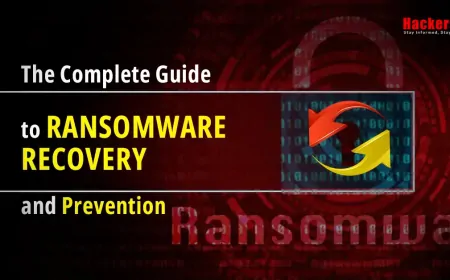What Are the New Cybersecurity Regulations Under India’s Digital Personal Data Protection Act 2023 (DPDP Act)?
In a world where data is the new gold, protecting personal information has become a top priority for governments and businesses alike. India, with its booming digital economy and over 760 million internet users, has taken a bold step with the Digital Personal Data Protection Act (DPDP Act) of 2023. Enacted on August 11, 2023, this landmark law introduces India’s first comprehensive framework for safeguarding digital personal data, setting new cybersecurity standards for businesses and organizations. Whether you’re a company handling customer data, a consumer concerned about privacy, or simply curious about India’s evolving data laws, this blog post breaks down the DPDP Act’s cybersecurity regulations in a clear and approachable way, exploring their impact, requirements, and practical steps for compliance.

Table of Contents
- What is the DPDP Act?
- Why Cybersecurity Matters Under the DPDP Act
- Key Cybersecurity Regulations in the DPDP Act
- Challenges in Complying with DPDP Cybersecurity Regulations
- Practical Steps for DPDP Compliance
- Tools and Technologies for DPDP Compliance
- Conclusion
- Frequently Asked Questions (FAQs)
What is the DPDP Act?
The Digital Personal Data Protection Act (DPDP Act), passed on August 9, 2023, and published on August 11, 2023, is India’s first dedicated data privacy law. It regulates the collection, processing, storage, and transfer of digital personal data—any information that can identify an individual, like names, email addresses, or financial details. The Act applies to data processed within India, whether collected online or digitized from offline sources, and extends to foreign entities offering goods or services to Indian residents. The DPDP Act balances individual privacy rights with the legitimate needs of businesses, introducing strict cybersecurity measures to protect data. It also establishes the Data Protection Board of India (DPB) to enforce compliance and impose penalties for violations.
[](https://www.digitalguardian.com/blog/what-indias-digital-personal-data-protection-dpdp-act-rights-responsibilities-everything-you)[](https://www.hunton.com/privacy-and-information-security-law/india-passes-digital-personal-data-protection-act)
Why Cybersecurity Matters Under the DPDP Act
Cybersecurity is at the heart of the DPDP Act, as data breaches and cyberattacks pose significant risks to individuals and businesses. With India’s digital economy growing rapidly, the Act addresses the need to secure personal data against threats like hacking and phishing. Key reasons cybersecurity is critical under the DPDP Act include:
- Protecting Privacy: Ensures personal data, like financial or health information, is safe from unauthorized access.
- Building Trust: Demonstrates to customers that their data is handled responsibly, fostering confidence.
- Avoiding Penalties: Non-compliance can lead to fines up to ₹250 crore (approximately $30 million USD).
- Preventing Breaches: Strong cybersecurity reduces the risk of costly data breaches, which averaged $2.2 million in India in 2024, per IBM.
The DPDP Act’s cybersecurity regulations are designed to create a secure digital environment, protecting both citizens and businesses.
https://www.cookieyes.com/blog/india-digital-personal-data-protection-act-dpdpa
Key Cybersecurity Regulations in the DPDP Act
The DPDP Act introduces several cybersecurity-focused regulations to protect digital personal data. The table below summarizes key requirements and their implications:
| DPDP Regulation | Description | Cybersecurity Implication |
|---|---|---|
| Data Security Safeguards | Implement reasonable security measures to prevent data breaches. | Use encryption, firewalls, and access controls to secure data. |
| Breach Notification | Notify the Data Protection Board and affected individuals within 72 hours of a breach. | Requires real-time monitoring and rapid response plans. |
| Data Protection Impact Assessments (DPIAs) | Conduct regular assessments to identify and mitigate data risks. | Ensures proactive identification of vulnerabilities. |
| Appointing a Data Protection Officer (DPO) | Significant Data Fiduciaries must appoint a DPO based in India. | Ensures dedicated oversight of cybersecurity practices. |
These regulations aim to create a robust cybersecurity framework for organizations handling personal data.
Challenges in Complying with DPDP Cybersecurity Regulations
While the DPDP Act sets clear cybersecurity standards, compliance poses challenges, especially for global companies and small businesses:
- Evolving Threats: Cyberattacks, like ransomware, are becoming more sophisticated, requiring constant updates to security measures.
- Cost of Compliance: Implementing encryption, hiring DPOs, and conducting DPIAs can be expensive for smaller firms.
- Cross-Border Data Transfers: Ensuring data security across borders, especially to non-approved countries, is complex.
- Lack of Clarity: The Act’s full implementation awaits government notifications, creating uncertainty around timelines and specifics.
- Employee Training: Staff may lack awareness of cybersecurity best practices, increasing the risk of human error.
These challenges require businesses to stay proactive and adaptable to meet DPDP requirements.
Practical Steps for DPDP Compliance
Companies can take practical steps to align with the DPDP Act’s cybersecurity regulations:
- Map Data Flows: Identify where and how personal data is collected, stored, and processed across systems.
- Implement Security Measures: Use encryption, firewalls, and two-factor authentication to protect data.
- Appoint a DPO: For Significant Data Fiduciaries, hire a Data Protection Officer to oversee compliance.
- Conduct DPIAs: Regularly assess risks to personal data and implement mitigation strategies.
- Develop a Breach Response Plan: Create a plan to detect, report, and mitigate breaches within 72 hours.
- Train Employees: Educate staff on DPDP requirements and cybersecurity practices, like spotting phishing attempts.
- Secure Data Transfers: Use approved mechanisms for cross-border data transfers, pending government’s restricted country list.
- Maintain Audit Trails: Keep records of data processing activities to support compliance audits.
- Provide Privacy Notices: Share clear, multilingual notices about data use, as required in 22 Indian languages.
These steps help organizations build a strong cybersecurity framework to meet DPDP standards.
Tools and Technologies for DPDP Compliance
Technology can simplify compliance with the DPDP Act’s cybersecurity regulations. Here are some tools:
- Consent Management Platforms: Tools like CookieYes or OneTrust manage user consent and privacy notices.
- Encryption Software: Solutions like VeraCrypt or AWS Key Management Service secure data storage and transmission.
- SIEM Systems: Splunk or Fortra’s Digital Guardian monitor data access and detect threats in real time.
- Data Mapping Tools: DataGrail or Collibra help track personal data across global systems.
- Compliance Platforms: UpGuard or TrustArc streamline DPIAs and breach reporting processes.
Choosing DPDP-compliant tools ensures businesses meet the Act’s cybersecurity requirements efficiently.
https://www.cookieyes.com/blog/india-digital-personal-data-protection-act-dpdpa
https://www.digitalguardian.com/compliance/dpdp
Conclusion
The Digital Personal Data Protection Act of 2023 marks a transformative step in India’s journey toward robust data privacy and cybersecurity. By introducing regulations like mandatory breach notifications, Data Protection Impact Assessments, and the appointment of Data Protection Officers, the DPDP Act ensures organizations prioritize the security of personal data. While challenges like evolving cyber threats and compliance costs exist, businesses can meet these requirements through proactive measures like encryption, employee training, and regular audits. Leveraging compliant technologies further simplifies the process. Ultimately, the DPDP Act is about more than avoiding fines—it’s about building a secure, trustworthy digital ecosystem that empowers Indian citizens and supports the country’s growing digital economy.
Frequently Asked Questions (FAQs)
What is the DPDP Act?
The DPDP Act is India’s 2023 data privacy law regulating the processing of digital personal data to protect individual privacy.
Who must comply with the DPDP Act?
Any entity processing digital personal data in India or offering goods/services to Indian residents must comply.
What is digital personal data?
It’s any data that can identify an individual, like names, emails, or financial details, in digital form.
What are the penalties for DPDP violations?
Fines can reach ₹250 crore (about $30 million USD) for breaches or non-compliance, depending on severity.
Does the DPDP Act apply to non-digital data?
No, it only applies to data collected digitally or digitized from non-digital sources.
What is a Data Protection Officer (DPO)?
A DPO is a person appointed by Significant Data Fiduciaries to oversee DPDP compliance.
What is a Data Protection Impact Assessment (DPIA)?
It’s a process to identify and mitigate risks to personal data during processing activities.
How quickly must data breaches be reported?
Breaches must be reported to the Data Protection Board and affected individuals within 72 hours.
What is the Data Protection Board (DPB)?
The DPB is India’s regulatory body for enforcing DPDP compliance and imposing penalties.
Does the DPDP Act apply to foreign companies?
Yes, if they process data of Indian residents while offering goods or services.
What is a consent manager?
A registered entity that helps users manage their data consent, accountable to the Data Protection Board.
Is encryption mandatory under the DPDP Act?
It’s not explicitly required but is a recommended safeguard to protect personal data.
Can personal data be transferred outside India?
Yes, except to countries restricted by the Indian government, pending notification.
What are the rights of data principals?
Data principals can access, correct, delete, or withdraw consent for their personal data.
Does the DPDP Act apply to government entities?
Government entities may be exempt for purposes like national security or legal enforcement.
How often should DPIAs be conducted?
Regular DPIAs are required, typically annually or after significant system changes.
What is a Significant Data Fiduciary?
An entity handling large volumes or sensitive personal data, as designated by the government.
Can individuals file complaints under the DPDP Act?
Yes, through the Data Protection Board after exhausting the organization’s grievance process.
Does the DPDP Act mandate data localization?
No, but data transfers to restricted countries may be prohibited by government notification.
Who enforces the DPDP Act?
The Data Protection Board of India enforces the Act, with regulatory powers reserved by the government.
What's Your Reaction?










































































